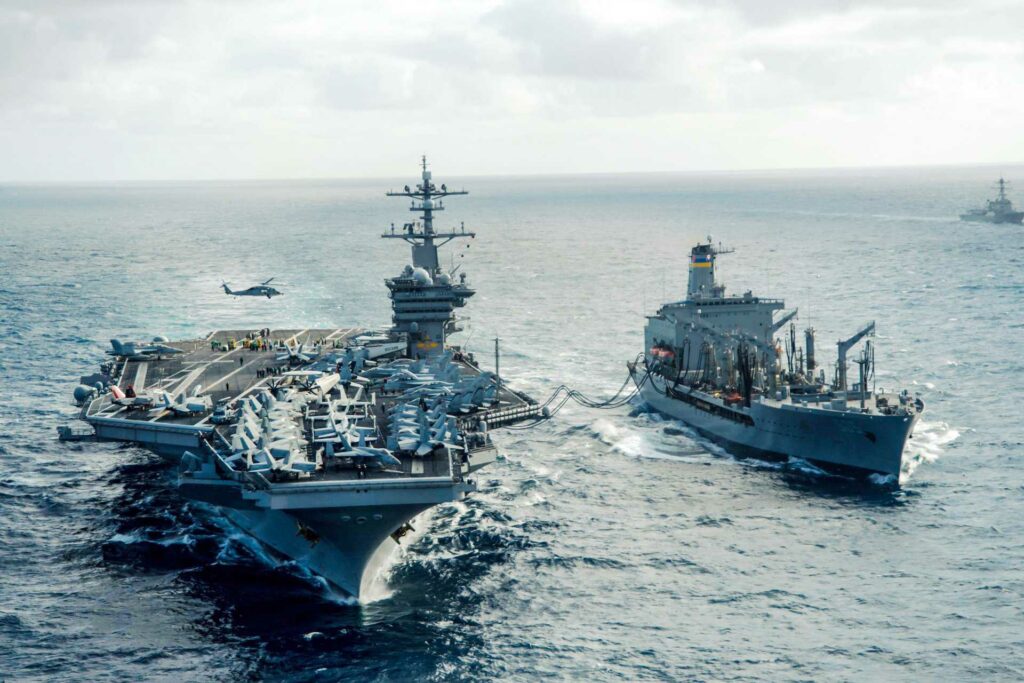Article 15 of the Uniform Code of Military Justice allows commanders to impose punishments for minor offenses without sending the matter to a court-martial. It is intended to allow commanders to deal with lower-level disciplinary matters quickly and then move forward with the mission. The servicemember can decide whether to appear before the commander personally or not. The commander reviews the evidence and any written matters or testimony that the servicemember wishes to have considered and then determines whether or not the evidence shows by a preponderance that the servicemember committed the offense. If the commander determines that the offense was committed, he can then impose punishment. Commanders can award several types of punishment, including short-term restriction and forfeiture of some pay. These proceedings can be called “nonjudicial punishment, or NJP,” “an Article 15,” or, in the sea-services, “Captain’s Mast.”
In most cases, a servicemember is afforded the right to consult with a defense attorney before the NJP is imposed. After this consultation, if the servicemember disputes the charges he may refuse the NJP and request trial by court-martial. The command is not required to refer the matter to court-martial, but it may not proceed under Article 15. There are pros and cons to this refusal for a servicemember. A court-martial has a much higher burden of proof than an NJP and any charges brought to trial must be proven beyond a reasonable doubt. A court-martial also gives a servicemember the right to be represented by an attorney and greater leeway in calling witnesses or experts than is normally available for an NJP proceeding. On the other hand, a loss at court-martial results in a conviction and potentially more significant punishment, including confinement and a punitive discharge from the service.
Not all servicemembers are able to refuse NJP, however. In 1962, when Congress amended Article 15 to include the right to demand trial by court-martial, it also created an exception to this right for servicemembers attached to or embarked in a vessel. The reasoning behind this exception makes sense, a ship’s commander needs to be able to discipline those aboard his ship in a timely manner. Other options, like court-martial, administrative separation, or reassignment are made more difficult by the nature of a ship and the far-flung locations to which it may be deployed. A Sailor, Coast Guardsman, Marine, or other servicemember attached to or embarked in a vessel does not have the right to consult with an attorney concerning whether to refuse NJP and does not have the right to refuse NJP.
In 1997, the Court of Appeals for the Armed Forces examined the extent of the vessel exception in United States v. Edwards. In that case, the Government had provided evidence that Edwards had previously been the subject of Captain’s Mast during it’s sentencing case. On appeal, Edwards argued that the ship to which he had been assigned at the time was in dry dock and not operational and that he should have, therefore, been allowed to refuse the Captain’s Mast and request court-martial. He argued that because he was improperly denied the right to refuse the punishment, it should not have been admitted at his later, unrelated, court-martial. The Court of Appeals agreed. The Court pointed to the definition of “vessel” found in the UCMJ–watercraft used, or capable of being used, as means of transportation on the water. It found that the operational status of a ship was relevant to determining whether the ship was capable of being used as a means of transportation on the water and reversed the lower court.
Despite this holding from the Court of Appeals that the operational status of a ship was relevant to whether or not a servicemember attached to that ship was afforded the right to consult with an attorney and to refuse proceedings under Article 15, commands have continued to impose Captain’s Mast upon servicemembers even when the ships were in long-term maintenance or dry dock. The Navy has now acted to clarify the issue, 26 years after Edwards was decided. In an ALNAV published this month, the Navy states that the vessel exception now only applies when the vessel is operational. It does not apply when the ship is in a Maintenance and Modernization Phase, when it is pre-commissioning, or when it is otherwise designated as nonoperational by a higher command.
The memo also extends the right to consult with an attorney to all Sailors before Captain’s Mast is held, even when the vessel exception applies, so long as the communication with a defense attorney is operationally feasible. The ALNAV also offers a post-NJP opportunity to consult with counsel concerning the right to appeal the results of an NJP.
Hopefully this new guidance will ensure that more Sailors are afforded the opportunity to consider whether to proceed under Article 15 or to demand a trial by court-martial. If you or your loved one is facing a court-martial or wants to appeal a court-martial conviction, you need someone with experience who knows the law. I have the experience you need. Please call Bill Cassara at (706) 445-2943 for a free consultation.

